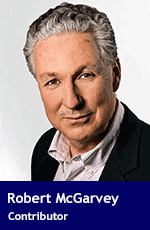 If you’ve been lost in a forest or stuck on a uninhabited island, you could be unaware of the Panama Papers, a set of explosive documents hacked from Panamanian legal firm Mossack Fonseca.
If you’ve been lost in a forest or stuck on a uninhabited island, you could be unaware of the Panama Papers, a set of explosive documents hacked from Panamanian legal firm Mossack Fonseca.
The documents include details of 214,000 companies legally domiciled in Panama but owned by offshore entities. While there’s nothing illegal about these secretive companies, many have been used for illegal purposes such as corporate fraud, drug trafficking and/or international tax evasion.
The papers have brought unwelcome attention to many powerful people. They have been particularly embarrassing for David Cameron, prime minister of the United Kingdom. After a week of denials, he now says he accepts full responsibility for his undisclosed involvement in his father’s tax ‘efficient’ offshore investment fund. Cameron clearly hopes the release of his personal tax records will put an end to the political fallout, but tens of thousands are clamouring for his resignation.
Matthew Parris, a former Conservative MP and now respected British journalist, raised the alarm about the Panama Papers in London’s The Times: “Do the rich, the powerful and the famous get it . . . they’d better or the people will put a Marxist in Downing Street.”
How did we get to such a place? What combination of circumstances created an opportunity for the rich and powerful, assisted by prestigious legal and accounting institutions, to hide assets and avoid paying taxes?
Whatever the circumstances, it’s no longer a secret. The public has become increasingly aware that over the past few decades, the playing field has tilted strongly in favour of corporations and the rich.
Globalization didn’t start out this way and it wasn’t supposed to end this badly. After the Second World War, breaking down trade barriers and encouraging the free movement of capital were encouraged. The logic in those days was “a rising tide lifts all boats” – encouraging globalization would help maintain the peace and elevate the general prosperity of all.
It was not supposed to be a giveaway for rich individuals or an invitation for major corporations to game the system. But that’s exactly what happened.
The question is why?
The answer is simple: an alien ideology buried within a radical new school of economics called monetarism first enthralled and then captured the powerful Western elite.
And what were these new ideas?
They originated with cynical Russian immigrant Ayn Rand, who is famous for putting forth the proposition that “society doesn’t exist . . . that nations are simply collections of individuals who have no moral responsibility toward one another.” More importantly for Rand, governments are the source of all our problems. Governments are always bad and oppressive, while corporations are at all times good and benevolent.
This logic created the climate for rich individuals to do whatever was necessary to avoid paying taxes. After all, we’re just individuals maximizing our own best interests. And why feed the beast of government if it’s the enemy of freedom?
This set of ideas also equated general prosperity with corporate profits, despite the fact that major corporations were hollowing out the developed economies by sending production to ‘friendlier’ regimes in Asia, where there are no labour laws, trade unions or environmental regulations to deal with.
You might have noticed that as globalization developed in the 1990s, the West (which we used to think of as the free world) stopped defining itself in terms of human rights. The criticism of China, for instance, used to focus on the Community Party’s oppression and its abuses of human rights.
But now that major Western corporations are profiting from those abuses, well . . . we rarely mention them.
Meanwhile, as global productivity continues to increase, the middle classes are losing ground. Their sons and daughters are facing a world where house prices make home ownership a risky form of debt slavery and where their children’s chances of good jobs and financial independence are fading fast.
Do the rich “get it?” They’d better, and soon.
American presidential candidates Donald Trump and Bernie Sanders are riding a growing wave of populist anger that could change things dramatically. What was a perfectly legal tax strategy could soon position you as a tax dodging enemy of the people.
Society matters and so do our foundational ideas. At the moment, our social system is governed by a set of dangerously anti-social ideas. When these ideas change – and they could change suddenly – docile Western elites could soon learn the realities of moral responsibility, the hard way.
Robert McGarvey is an economic historian and former managing director of Merlin Consulting, a London, U.K.-based consulting firm. Robert’s most recent book is Futuromics: A Guide to Thriving in Capitalism’s Third Wave.
Robert is a Troy Media contributor. Why aren’t you?
The views, opinions and positions expressed by columnists and contributors are the author’s alone. They do not inherently or expressly reflect the views, opinions and/or positions of our publication.


